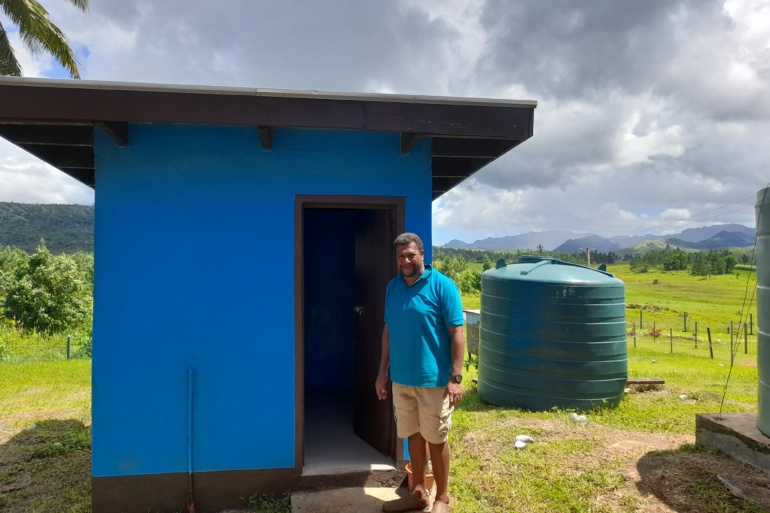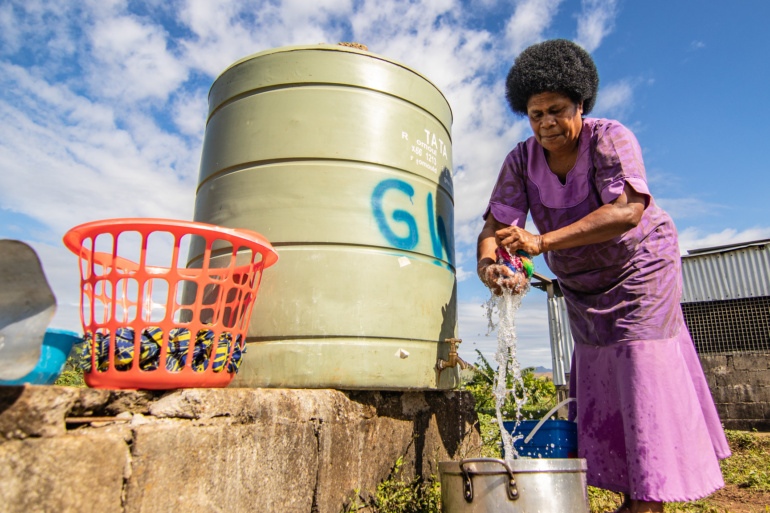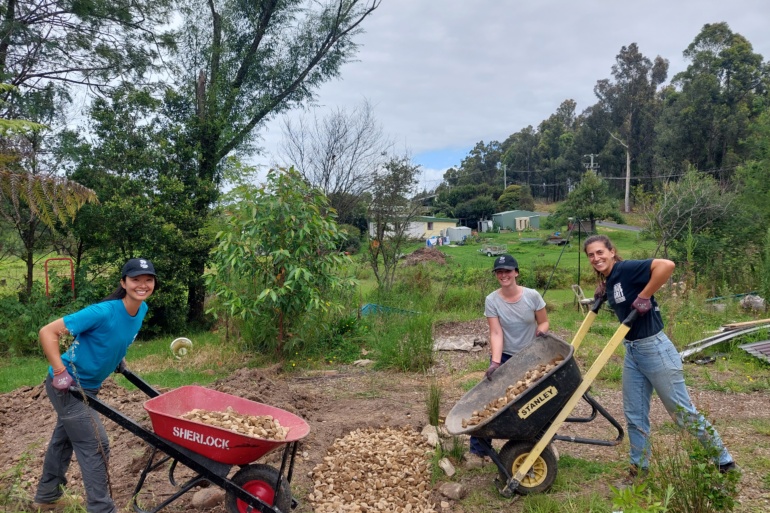everyone needs a community to be self-reliant
Our work supports communities to improve their water and sanitation facilities and empowers them to improve their water, sanitation and hygiene behaviours. The result is healthier and stronger communities and brighter futures.
According to the World Health Organisation, 785 million globally live without access to clean water. Millions of people including children die every year from diseases associated with inadequate water supply, sanitation and hygiene.
This is why clean water and sanitation is one of the United Nations Sustainable Development Goals (SDG 6) and Habitat for Humanity Australia works towards achieving it.
Access to clean water and sanitation reduces instances of illness and saves households time and money. The result is healthier and stronger communities and brighter futures.
We work in Bangladesh, Cambodia, Myanmar, Fiji, Nepal and Vietnam supporting communities to access improved water and sanitation. This includes construction of new or improved water supply facilities such as wells, water tanks and water treatment systems, as well as sanitation facilities such as drainage, toilets/latrines and bathing/hand-washing facilities. These types of physical interventions are delivered in conjunction with working with families, communities and schoolchildren with the aim of changing behaviours for improved management of water resources and hygienic practices. One our largest WASH programs we support is Water for Women in Fiji.
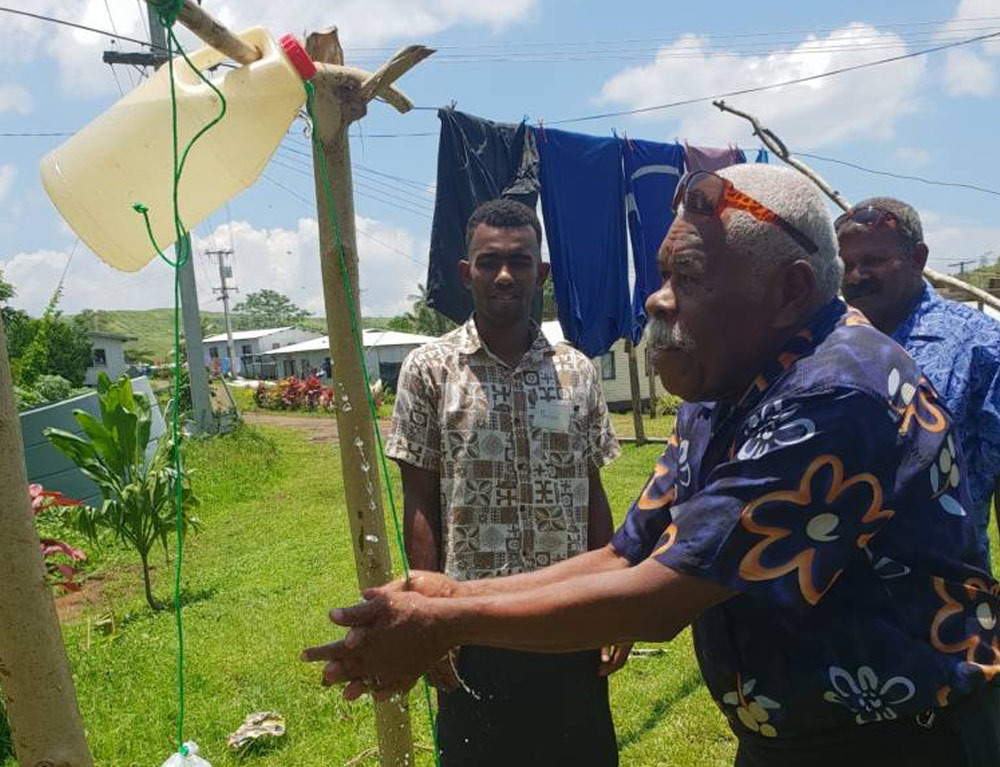
Water for Women Fiji
Since 2018, Habitat for Humanity Australia and Habitat for Humanity Fiji has been implementing the Department of Foreign Affairs and Trade’s (DFAT) Water for Women project to deliver a participatory and socially inclusive community project in Fiji. The project is addressing core water, sanitation and hygiene needs of people in 18 targeted rural Fijian communities. This includes women and girls, people with disabilities and people from the LGBTIQ+ community.
Our Water for Women (WfW) project was a successful 4.5-year long project in Fiji which strengthened community resilience and inclusion through improved WASH services. Through DFAT’s Water for Women Fund, Habitat for Humanity Australia and Habitat for Humanity Fiji in alignment with Fiji’s National Development Plan (NPD), we supported over 5,021 people in 18 communities and 11 schools in Fiji to have improved access to water and sanitation. The project concluded in January 2023 but was delivered to produce sustained project outcomes through a variety of infrastructure interventions and strengthened local WASH management systems and structures, including the increased role of women in community decision making processes around WASH.
The Water for Women project achieved four main objectives:
Increasing agency of women in community WASH governance structures
Improved community behaviours around inclusive water, sanitation and hygiene
Improved access to water and sanitation infrastructure and services in 18 communities and 11 schools
Key learnings from the project shared with organisational, local, national and international stakeholders
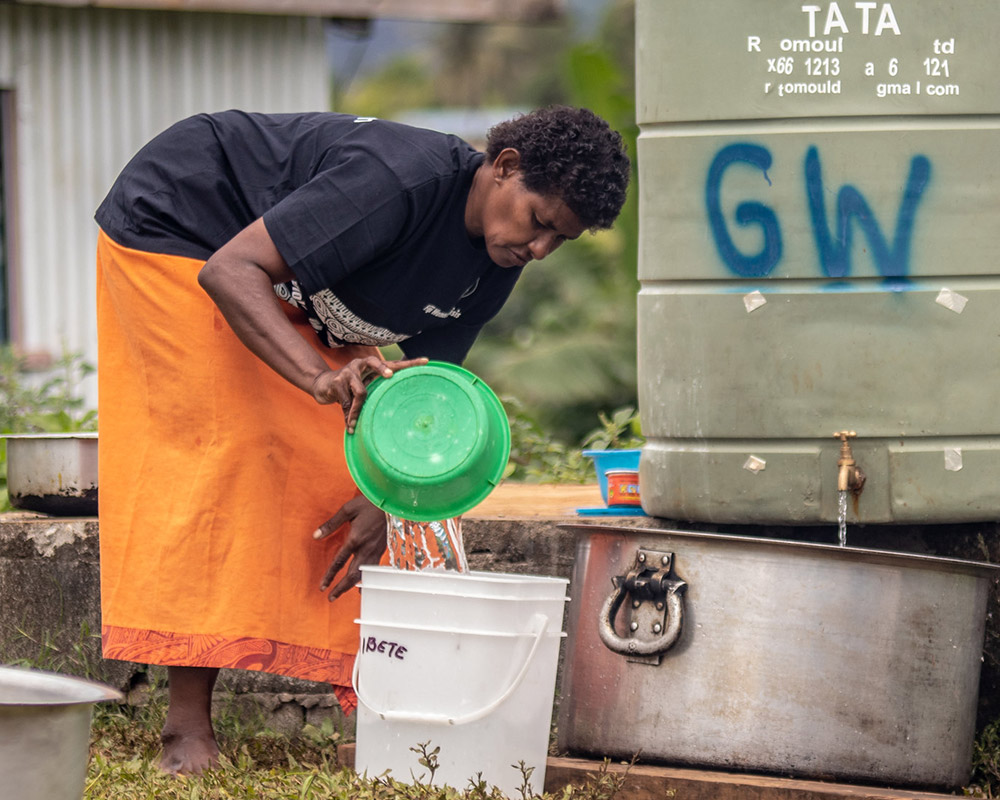
The project provided a platform for advocating for sensitive gender issues in Fiji, which has a largely patriarchal society. The project activities challenged mindsets and supported women into leadership roles, resulting in an increase in the number of women in decision-making roles within the water committees, supported by key leaders in the communities.


